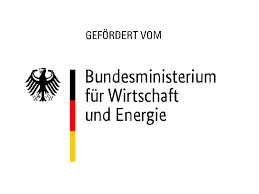EVAREST - Generation and utilization of data products in food production through Smart Services
With a turnover of 171 billion euros and approximately 580,000 employees, the food industry plays a strategically important role in the German economy, both economically and socially. Digitization represents an opportunity for the food industry to increase efficiency by utilizing internal and external data. But so far, the mass data collected in food production is only a means to an end, since the main focus is on local optimization of costs along the value chain. For example, data on raw material quality, seasonal and regional availability and market demand are generated for the local selection of natural raw materials, including vegetables, cereals and fruit. In addition, there are regulatory requirements for data collection with regard to the traceability of supply chains and raw materials.
Large amounts of data are also collected for the processing of raw materials into standardized products using physical, biological or chemical methods and for final quality control. The raw data generated in these process steps and their potential processing into usable data are currently only partially processed in local data silos per production site purely for the purpose of optimizing production. Economic utilisation of the data across locations or manufacturers is only partially carried out at a high level of aggregation, so that a large part of the data value remains unused.
This unused potential must be processed just as professionally as the usual optimized utilization of physical resources in production. This is because in the context of a digital transformation, data also has the potential to become a product (i.e., a data product) itself with additional utilisation opportunities and thus the basis of a data economy. The potential of digital data as an independent economic good has only been marginally utilized in Germany to date. If all the data produced by German industry is combined, analyzed and condensed into data products, an extremely large digital market is created. This market is influenced, limited or even made possible by data protection, economic, strategic and regulatory conditions.
Objectives and Approach
The project aims to make the operation of AI systems traceable, measurable and thus certifiable. Concrete concepts for the auditing and certification of AI applications are to be developed. For this purpose, the technical and legal requirements to be considered when using AI systems will be determined. The investigation is based on two typical fields of application for AI systems.
Funded by the federal ministry of economics and technology.

|
Project manager |
Professorial Chair of Legal Informatics – Prof. Dr. Christoph Sorge |
|
Contact |
Research Associate Dipl. Jur. Lena Leffer (Mail) |
|
Project partner |
Deutsches Forschungszentrum für Künstliche Intelligenz – Smart Service Engineering |
|
Associated partner |
Bundesvereinigung der Deutschen Ernährungsindustrie (BVE) |
|
Project duration |
January 2019 – December 2021 |




